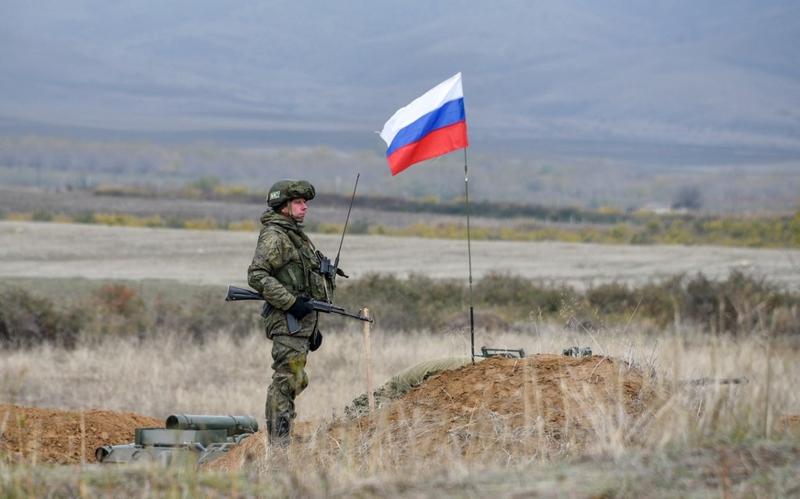 In this Nov 20, 2020 photo, a Russian peacekeeper patrols at the check point outside Askeran. (Karen MINASYAN / AFP)
In this Nov 20, 2020 photo, a Russian peacekeeper patrols at the check point outside Askeran. (Karen MINASYAN / AFP)
Nuclear trains were once considered a relic of the Cold War.
Russia seemed to put more hopes of restarting nuclear negotiations with the next US administration, as RT described President-elect Joe Biden as "a supporter of nuclear de-escalation"
But now the secretive locomotives could be set for a comeback, carrying warheads around Russia in a move that could set Moscow on a collision course with Washington, Russian experts said.
In comments carried by the Mosckovsky Komsomolets newspaper, Russian military expert Alexey Leonkov outlined how the Sovietera project could be reborn.
He said the deployment of train-based intercontinental ballistic missiles might be Russia's next step amid escalating nuclear tensions with NATO. The deployment is sure to raise hackles in the United States, which would see this kind of project as a threat to its missile defense system.
ALSO READ: Russia blames US as 'root cause' of Iran uranium enrichment
In the era of the Soviet Union, railway missile networks were developed with the intention of ensuring warheads could be transported easily around the country and go unnoticed by Western satellites and surveillance systems.
By contrast, land-based launchers and those in underground silos are far more easily tracked and monitored, Leonkov said.
Difficult to detect, the system became a key area of focus for bilateral negotiations with the US after the dissolution of the USSR, and the trains were banned under the START II treaty, signed in 2005.
The New START treaty that replaced it has more limited provisions on mobile missiles, potentially opening the door to the scheme being resurrected.
'Effective response'
Vladimir Evseev, a strategic weapons specialist and veteran of Russia's missile forces, told Russian state news agency RIA Novosti that he believed the deployment of a new model of railway-based nukes would be "the most effective response to the strategic threat posed by the growth of NATO military bases near Russia's borders".
He added that if Russian military chiefs gave the go-ahead, the system could be revived within three to five years. It was previously reported that development was underway on the project, but officials were said to have halted work in 2017.
Russian channel RT said tensions between Russia and the West have risen in recent years over warheads stationed near the country's European borders.
Russia's Deputy Foreign Minister Sergey Ryabkov warned in December of the possibility of a nuclear conflict between Russia and the US as the latter kept "sharing" nuclear weapons with its European allies.
READ MORE: NATO chief calls for renewed US, Russia nuke arms deal
But Russia seemed to put more hopes of restarting nuclear negotiations with the next US administration, as RT described President-elect Joe Biden as "a supporter of nuclear de-escalation".
The New York Times reported on Sunday that Biden's incoming national security adviser Jake Sullivan said the new administration would move quickly to renew the last remaining major nuclear arms treaty with Russia.
Advancing the arms control agenda and extending New START(Strategic Arms Reduction Treaty) meets the interests of both countries, Sullivan said.


